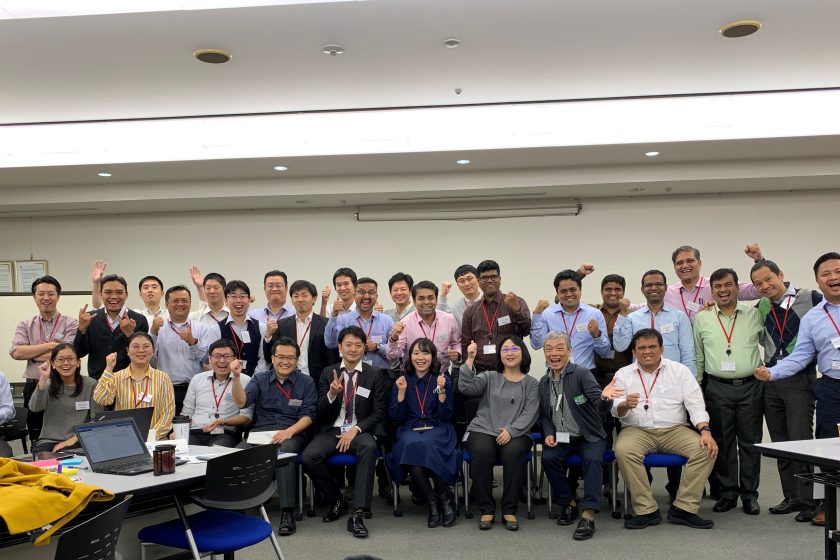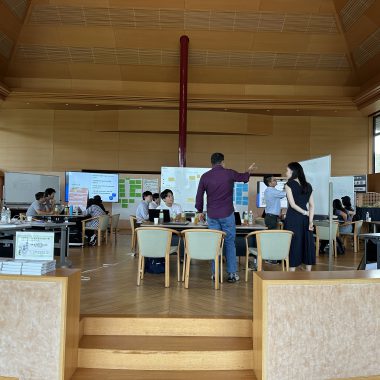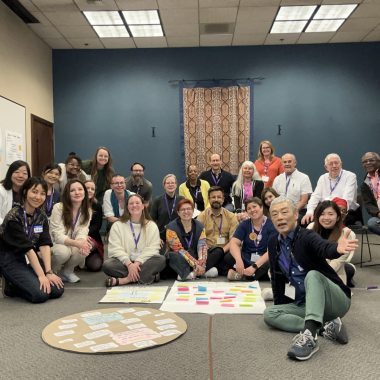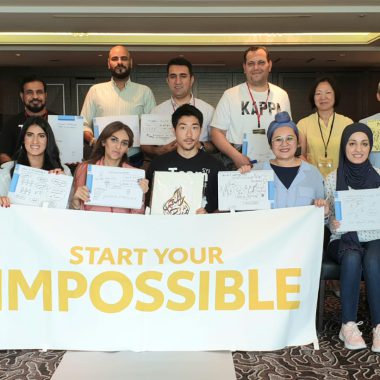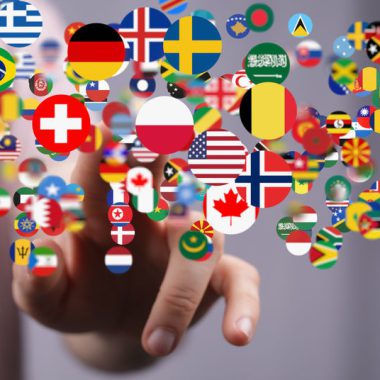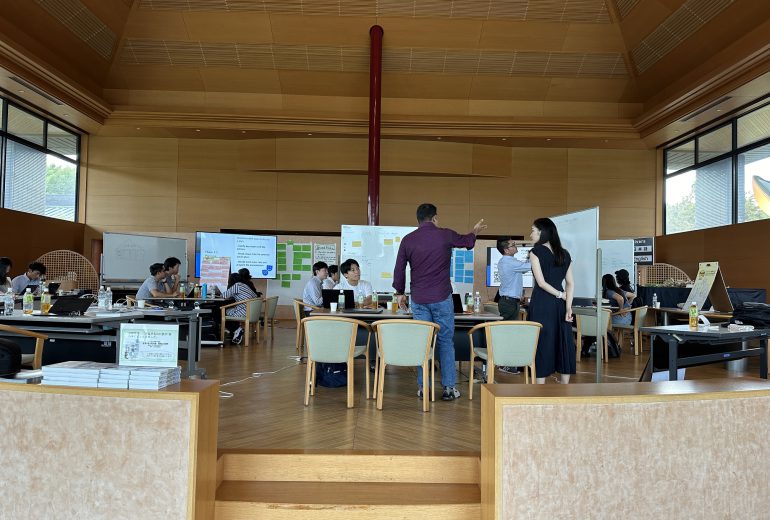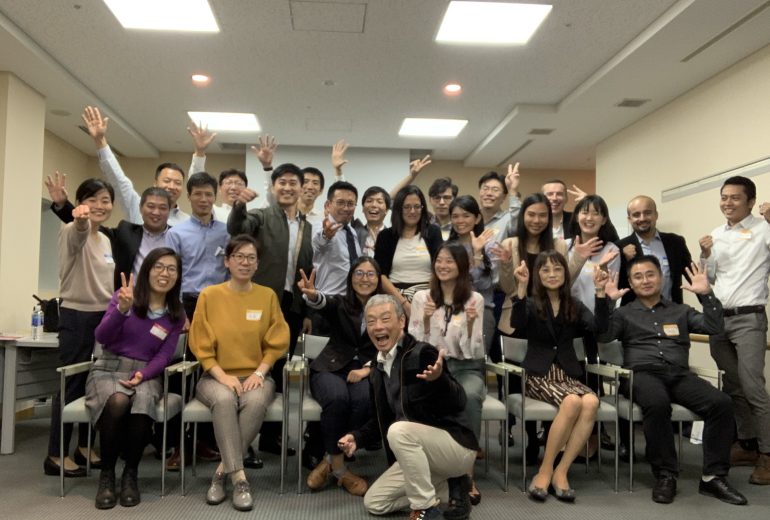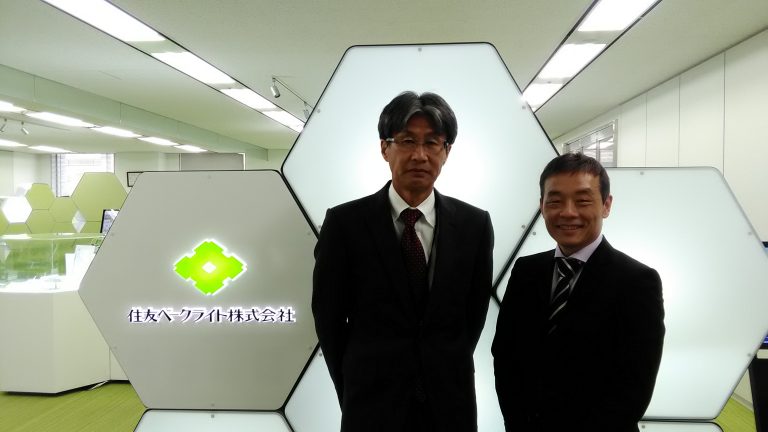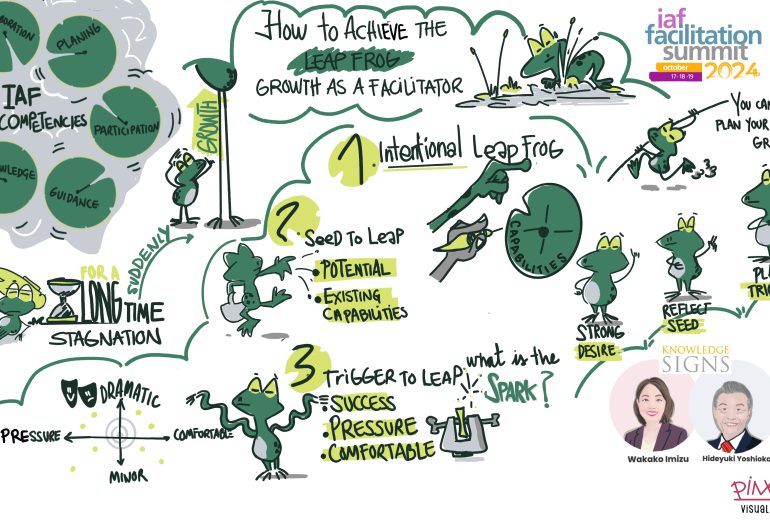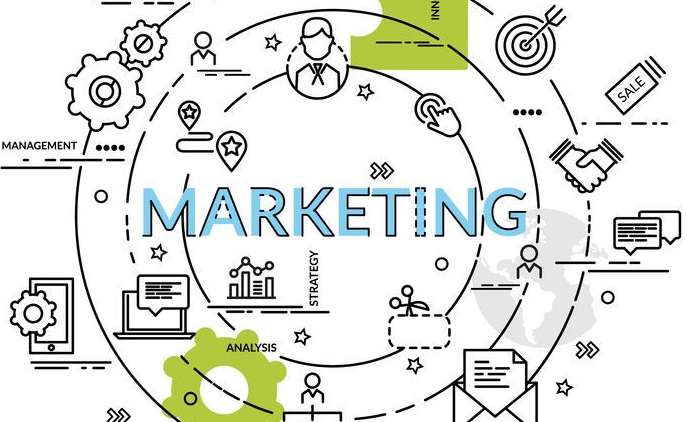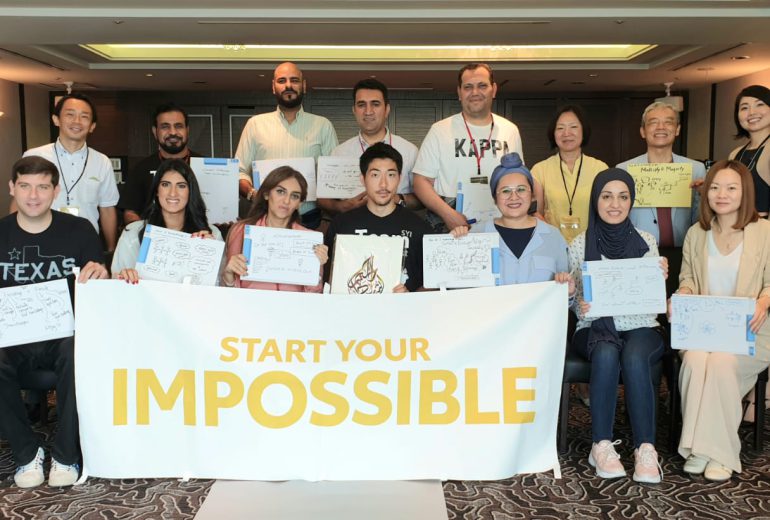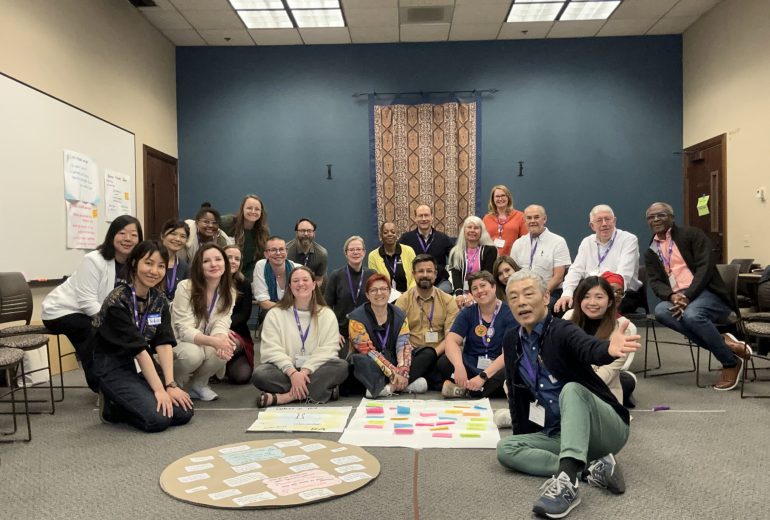This post is also written in the following language:
![]() 日本語 (Japanese)
日本語 (Japanese)
Five-day seminar with 29 next-generation leaders from 7 countries
Since its establishment in 1961, Toyo Engineering Corporation (TOYO) has been involved in numerous plant construction projects around the world, including energy, transportation, infrastructure, and factories, utilizing its engineering technology and project management capabilities.
Based on its philosophy of being a Global Leading Engineering Partner, the company has offices and networks around the world and promotes collaboration with a diverse range of human resources from around the world.
TOYO invites next-generation leaders from each region to its headquarters to deepen their understanding of TOYO’s philosophy, to foster leadership in a cross cultural environment, and to promote continuous and evolving collaboration through human networks that transcend national boundaries. Global Leaders Seminar is held annually.
In November 2019, 29 next-generation leaders from 7 countries were invited to participate in the 5-day seminar.
Knowledge Sign was involved in the program planning and facilitation of the workshop on the fourth day. This is a report of the workshop.
Discuss how a leader should act as a Values Ambassador
The first three days of this seminar covers the technical elements of leadership, while the fourth and subsequent days consider how to put leadership into practice.
In order to encourage the ideal behavior of a leader, Knowledge Sign has developed a workshop based on the concept that a leader is a Values Ambassador, who embodies the company’s values. In this workshop, leaders discuss how to understand the Corporate Values more deeply, how to embody them, and how to encourage their colleagues to act in a values-based manner.
TOYO’s five values are as follows
Integrity: We carry out our work with sincerity and responsibility.
To carry out the work in good faith under his or her own responsibility. To focus on maintaining transparency and accountability in the course of performing all work duties.
Creativity
To create new values in cooperation with our clients or by ourselves by applying our wisdom and creativity to the greatest extent.
To attempt to create changes without adhering to past experiences.
Diversity
To respect the individuality and personality of each person as well as the culture and customs of each country and region.
To respond to the variety of work and tasks in a flexible manner while viewing them from different angles.
Learning
To acquire new experiences, skills and knowledge with an enterprising spirit.
To continuously pay attention to national and international technological and economic trends and to attempt to grasp the essentials of such trends.
Team
To achieve high performance through team play with our clients and partners as well as within our Group.
To respect the standpoint of other persons and to share information about knowledge and tasks.

The workshop process was designed to discuss these five Corporate Values in the following steps: define, motivate, and promote.
STEP1 Understanding and defining the 5 Values
By sharing stories of their own embodiment of the five values, participants are able to define “values-aligned behavior” in an easy-to-understand manner.
STEP2 Motivation for values-aligned behavior
Based on the assumption that member-level personnel may not be as motivated to act in accordance with values as leader-level personnel, consider how to motivate them to think about values-aligned actions with their ownership.
STEP3 Consider leadership strategies to motivate members
Think about how to exercise strategic leadership to motivate members and encourage values-aligned behavior in your team or in your company as a whole.
How to motivate your colleagues
Please see the video below to see the actual workshop in action.
A unique aspect of this workshop process was the inclusion of the topic “Considering Motivation to Encourage Behavior Aligned with Values.
For the next generation leadership class, embodying the company’s values may be a natural part of being a leader. However, for the member class, some form of motivation is necessary. What benefits will I receive by acting in accordance with the values?
Especially in a diverse group of people, each individual has a different set of values. The leader’s role is to find the connection between the values of the individual and the company, and to support them in finding the benefits in terms of behavior and in their own affairs.
At the end of the workshop, the participants were asked to think as a group and present their leadership strategies on “how to motivate colleagues” to enable the entire workforce to act in accordance with the common values.


Facilitation Points for Workshops in Global Settings
The style of facilitation is not significantly different between a workshop in a global setting with a diverse group of people and a training or workshop in Japanese dominated groups.
However, subtle differences can have a significant impact on the outcome, so in global facilitation, you need to be aware of the differences and attune your facilitation style.
I do not like to stereotypically categorize based on cultural backgrounds, but I suggest what I’m conscious to do when I facilitate cross cultural groups.
Generally, Japanese people tend to focus on “how we are close to the correct answer” in training sessions, while other cultural people tend to think that there is more than one correct answer or that they are the most correct. The key point is to leave room for creativity in the group work process.
At the debrief of the workshop, trainer, facilitator usually ask the participants, “What did you learn?” in global setting. But it sometimes doesn’t work in Japan. Participants require the trainer, facilitator to tell them what they leaned. What they leaned is generally believed to be identified by the trainer, facilitator as the correct answer in Japan.
It’s a kind of cultural difference. In global setting, we try not to be too much suggestive. Always the answer is in the participant’s side.
Meanwhile, in overseas training and workshops, participants often ask questions such as, “Wouldn’t it be better if I did it this way? or “I think this way is better, what do you think? ” Participants challenge the trainer, facilitator with questions that strongly promote their own opinions.
In such cases, participants don’t want textbook answers. They would like to discuss about that topic, have a different perspective or sometimes to be acknowledged.
You need to take that a good opportunity to provoke creative interaction involving others.
In global setting, we should value autonomy and should not be too much suggestive. But it doesn’t mean we don’t have to be responsible to give good suggestions. We must be knowledgeable about the context and be ready to suggest based on rich experiences.

I would say, “In my experience, in a certain situation, this way worked well. So it might work in a similar situation. But I’m not sure in a different situation.” I try to explain the implication between methodology and context in a way that is easy to understand, based on my experience.
It is important for a global facilitator to reflect on what you have experienced and the gaps you have observed in global situations, and to organize them in your own way, and keep them in your knowledge base.
Facilitator
Hideyuki Yoshioka CEO of Knowledge Signs Inc.
As a professional facilitator, Hideyuki has crafted unique methods of facilitation and consulting. Hideyuki has been involved in professional facilitation for over 20 years and facilitated almost a thousand times of meeting.
Hideyuki always commits very critical meetings that require critical outcomes as enterprise mid-term strategies, organizational development plan, digital transformation plan.
And also has plenty of experiences to facilitate cross cultural group.
Hideyuki is always influential to facilitator’s community in Japan as a spearhead to lead new challenges.
Hideyuki has conducted original workshops in IAF Asia conference for three years in a row since 2014.■Certification
IAF CPF(Certified™ Professional Facilitator)Language: Japanese, English
Available: Japan, Singapore, Hong Kong, India,other areas in Asia, North America, Eu


